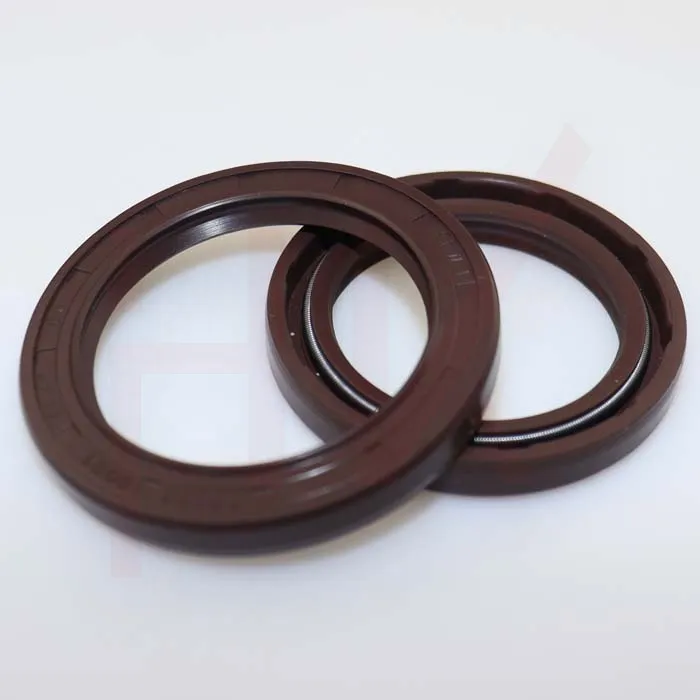Dec . 05, 2024 05:47 Back to list
Maintenance and Selection of Wipers for Hydraulic Cylinders in Machinery Applications
Understanding Hydraulic Cylinder Wipers Essential Components for Performance and Longevity
Hydraulic systems play a critical role in various industries, powering machines and equipment that perform complex tasks. At the heart of these systems are hydraulic cylinders, responsible for converting hydraulic energy into linear motion. To ensure the efficiency and longevity of hydraulic cylinders, wipers are essential components that often go overlooked. This article delves into the significance of hydraulic cylinder wipers, their functions, and the factors to consider when selecting and maintaining them.
The Role of Hydraulic Cylinder Wipers
Hydraulic cylinder wipers, also known as scrapers, are designed to protect the internal components of hydraulic cylinders from contamination. They serve several key functions
1. Contamination Prevention One of the primary roles of wipers is to prevent dust, dirt, and other debris from entering the hydraulic cylinder. Contaminants can cause significant damage to the cylinder seals and other internal components, leading to leaks and reduced performance.
2. Oil Leakage Reduction Wipers also help control the amount of hydraulic fluid that escapes from the cylinder. Proper sealing prevents leaks, ensuring that the hydraulic system operates efficiently and reduces the risk of environmental contamination.
3. Extending Lifespan By keeping contaminants out and maintaining proper sealing, wipers help extend the life of hydraulic cylinders. This reduces maintenance costs and downtime, which is particularly important in industries that rely heavily on hydraulic machinery.
Types of Hydraulic Cylinder Wipers
Hydraulic cylinder wipers come in various types, each suited for different applications and conditions
. Here are some common types1. Lip Seal Wipers These wipers have a lip that presses against the rod, scraping off contaminants while allowing hydraulic fluid to flow freely. They are commonly used in applications where rod movement is frequent.
2. U-Cup Wipers Shaped like a U, these wipers provide a reliable sealing solution. They offer excellent resistance to wear and are generally used in higher-pressure applications.
3. T-Seals T-seals are designed for applications where the rod undergoes significant movement. They feature a unique design that allows for effective sealing while withstanding pressure changes.
4. Polymer Wipers Made from advanced polymer materials, these wipers offer high resistance to wear and chemical degradation. They are suitable for harsh environments and applications with high temperatures or corrosive substances.
hydraulic cylinder wipers

Key Factors to Consider When Selecting Wipers
When choosing hydraulic cylinder wipers, several factors should influence your decision
1. Application Environment The operating environment plays a significant role in the type of wipers you should choose. Consider factors like temperature, humidity, and exposure to chemicals or oils.
2. Rod Speed and Stroke Length The speed at which the rod moves and the length of its stroke can affect wiper performance. High-speed applications may require specific wiper designs to ensure effective sealing.
3. Material Compatibility Ensure that the materials used in the wipers are compatible with the hydraulic fluid and any other substances they may encounter. This compatibility minimizes the risk of material degradation over time.
4. Pressure Ratings Different wipers have varying pressure ratings, so it's crucial to select wipers that can handle the specific pressures experienced in your hydraulic system.
Maintenance and Care
To maximize the performance of hydraulic cylinder wipers, regular maintenance is essential. Here are a few tips
1. Regular Inspections Check the wipers frequently for signs of wear, cracks, or damage. Early detection can prevent more significant issues down the line.
2. Cleaning Keep the hydraulic cylinder and surrounding areas clean to minimize dirt and debris accumulation that could damage the wipers.
3. Timely Replacement Replace wipers as part of routine maintenance schedules. Signs that it's time for replacement include visible wear, reduced sealing efficiency, or leakage.
Conclusion
Hydraulic cylinder wipers may seem like small components, but their role in ensuring the efficiency and longevity of hydraulic systems is monumental. By preventing contamination, reducing leaks, and extending the lifespan of hydraulic cylinders, these wipers are critical to maintaining optimal performance in hydraulic machinery. Understanding their importance, types, selection criteria, and maintenance can help industries enhance their hydraulic operations and ultimately improve productivity. Prioritizing the health of these components will yield significant returns in performance, reliability, and cost-effectiveness.
-
The Trans-formative Journey of Wheel Hub Oil Seals
NewsJun.06,2025
-
Graphene-Enhanced Oil Seals: Revolutionizing High-Pressure Oil Sealing
NewsJun.06,2025
-
Future of Hydraulic Sealing: Advanced Intelligent TCN Oil Seals
NewsJun.06,2025
-
Don’t Let a Broken TCV Oil Seal Ruin Your Day
NewsJun.06,2025
-
Bio-Inspired Dust Seals for Better Sealing Performance
NewsJun.06,2025
-
Biodegradable and Sustainable Hydraulic Seal Materials
NewsJun.06,2025
-
Top Oil Seal Solutions for Your Industrial Needs
NewsMay.22,2025
Products categories
















